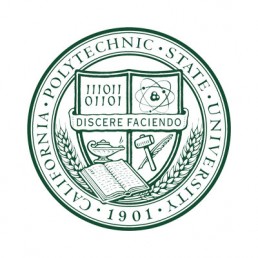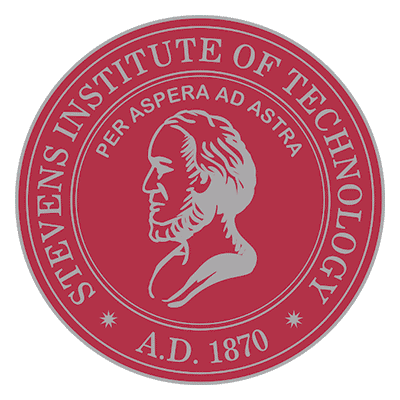- Show all
- California
- Colorado
- Connecticut
- District of Columbia
- Educational Institutions
- Florida
- Georgia
- Illinois
- Indiana
- Iowa
- Kansas
- Kentucky
- Louisiana
- Maryland
- Massachusetts
- Michigan
- Minnesota
- Mississippi
- Missouri
- Nebraska
- New Hampshire
- New Jersey
- New York
- North Carolina
- Oklahoma
- Pennsylvania
- Rhode Island
- Texas
- Virginia
- Washington
Augusta University
The mission of the School of Computer and Cyber Sciences is to provide high-engagement, state-of-the-art education and research across its Computer Science, Information Technology, and Cybersecurity disciplines. Our school’s vision includes becoming a national leader in cybersecurity.
Bellevue University
The BS-Cybersecurity program is an inclusive education in the theory and application of technical and non-technical security skills. The program covers an array of abilities required by the quickly evolving cybersecurity industry. These skills include applying protection, detection, and response technologies and procedures to identify threats, vulnerabilities, exploits, and controls in various cyber environments.
Boston University
The Master of Science specialization in cyber security is a graduate program within the Computer Science department, in which students are trained to work in this increasingly important field, which encompasses cryptographic methods, data and information security, fault-tolerant computing, network security, privacy and anonymity, software safety, and system security.
Brandeis University
A Brandeis MS in Information Security Leadership empowers you with the confidence of a top-tier master’s to lead through any cybersecurity challenge, and to influence decisions for risk prevention.
Brown University
The Brown University Executive Master in Cybersecurity (EMCS) is an 18-month program for professionals designed to cultivate high-demand, industry executives with the unique and critical ability to devise and execute integrated, comprehensive cybersecurity strategies for nations and industries across the globe.
California State Polytechnic University
The Center For Information Assurance combines the College of Business and College of Science emphasis on strategic use of information technology, the CIS/CS learn-by-doing approach to using computers, and the MSBA emphasis on information systems audit to further the study of Information Assurance and Forensics.
Carnegie Mellon University
Carnegie Mellon University has been designated as a National Center of Academic Excellence (CAE) in three distinct areas, Information Assurance/Cyber Defense Education (CAE-IA/CD), Information Assurance/Cyber Defense Research (CAE-R) and Cyber Operations (CAE-Cyber Ops).
Cornell University
Cornell has one of the largest and most visible groups of security researchers found anywhere, tackling the fundamental problems of security and privacy in modern computing systems. Cornell has been a leader in computer security for decades, making widely recognized contributions that range from theoretical foundations to practical implementations to influence on government policy.
Dartmouth College
ISTS engages in interdisciplinary research, education and outreach programs that focus on information technology (IT) and its role in society, particularly the impact of IT in security and privacy broadly conceived. ISTS nurtures leaders and scholars, educates students and the community, and collaborates with its partners to develop and deploy IT, and to better understand how IT relates to socio-economic forces, cultural values and political influences.
DePaul University
The BS in Cybersecurity prepares students to evaluate and manage an organization's computer, information and network security, as well as develop a solid information technology infrastructure.
Ferris State University
The Bachelor of Science and Master of Science in Information Security and Intelligence (ISI) programs prepare you for a variety of careers in corporate, governmental, law enforcement and defense settings. The Bachelor of Science program is available in Big Rapids and online, and the Master of Science program is available online.
George Mason University
Mason Engineering was doing cyber before it was cool. The school holds one of the longest track records of information security advancement in the U.S. Our location within the nation's epicenter of security technology makes us an incubator for the newest networks, systems, and trained experts.
George Washington University
The Cybersecurity Bachelor’s Degree Completion program combines highly technical, hands-on curriculum in labs and virtual environments with invaluable collaboration with government agencies, private companies and the military experts fighting every day on cyberspace’s front lines.
Georgia Tech
A secure internet and its applications are now essential to almost every aspect of our daily lives. Yet connected technology has opened the door for criminals and foreign governments to launch cyberattacks with increasing scale and impact.
Illinois Institute of Technology
Information security hacks are on the rise. With a master’s degree in cybersecurity from Illinois Tech, you will learn to assess, prevent, and manage security-related risks that threaten to harm our systems, our data, and our privacy. Mitigate these cyber risks while increasing data and systems protection, planning security measures, and recognizing potential legal and ethical issues with a deep knowledge of cybersecurity.
Indiana University
Information technology infrastructure in hospitals, libraries, voter registration systems, city governments, and other organizations is increasingly under attack. Basic cybersecurity literacy is more vital than ever before for business leaders—and more than half of employers say they don’t have enough cybersecurity staff.
Iowa State University
Iowa State University’s College of Engineering is introducing a bachelor of science degree program in cyber security engineering, the first major of its kind offered in the state. The new major – approved by the Board of Regents, State of Iowa at its Nov. 16 meeting – will begin in the fall of 2019.
Johns Hopkins University
Students in the Cybersecurity program at Johns Hopkins Engineering for Professionals become proficient in ensuring the confidentiality, availability and integrity of data, in preserving and restoring systems, and in developing risk management skills. State-of-the-art computing facilities and tools are accessible either on-site or online.
Louisiana Tech University
The Center for Secure Cyberspace (CSC) is a collaboration between Louisiana Tech University and Louisiana State University created to assist faculty members in their research and to support federal, state, and private sector cyberspace security needs in collaboration with the Cyber Innovation Center (CIC) in Bossier City, Louisiana.
Loyola University Chicago
This new major grows out of the enormous importance of network computing and the major challenges to security that these networks pose. Students examine the architecture, properties, management and performance of both wired and wireless networks, including how to keep them reliable and secure.
Michigan Technological University
Defenders of the Digital Frontier
The demand for cybersecurity experts has never been greater. Every day, hackers and cyber criminals launch new, more sophisticated computer viruses, malware, and scams that threaten the data our society relies on.
Mississippi State University
CSE's cyber security and operations master's program is one of the only degree programs in the Southeast to offer a cyber defense and cyber operations concentration. It is fixed on defeating the full spectrum of cyber attacks, Mississippi State’s NSF CyberCorps program is the 3rd largest in the country.
New Jersey Institute of Technology
The Cybersecurity and Privacy program offers comprehensive knowledge of network-based and system-level attacks and effective countermeasures to ensure that software and cyberinfrastructure are designed and implemented with top-notch security practices.
Northeastern University
The BS in Cybersecurity teaches students the conceptual and practical skills that will enable them to contribute to ensuring the reliability and security of cyberspace.
Oklahoma State University
Oklahoma State University ranks among an elite set of schools nationally in its offering of cybersecurity degree programs, according to analysis by CyberDegrees.org.
Pace University
Pace offers several academic programs with a cybersecurity focus. Our programs are taught at the graduate, undergraduate, and certificate levels. Our students range from new undergraduate to seasoned professionals updating their skills with an advanced certificate.
Pennsylvania State University
The Cybersecurity Analytics and Operations (CYAOP) Bachelor of Science program prepares students to protect digital information from attack through cyberdefense strategies. With a foundation in mathematics and computer programming, students will be prepared to recognize, analyze, defend against, and manage risks related to a wide range of threats to online information, data stores, and networks.
Prince George’s Community College
The Cybersecurity Program provides the skills for students to become highly skilled computer systems security professionals and to train individuals for entry-level positions as data security analyst, systems security administrators, and network security administrators.
Purdue University
Keeping data secure is an important goal of any good IT system. Once a system has been breached, personal, financial or classified data becomes vulnerable to exploitation. When you major in cybersecurity at Purdue University, you will learn the skills to create and maintain secure networks as well as ways to track down hackers who aim to breach that security.
Rochester Institute of Technology
The Department of Computing Security (CSEC) advances the state of the art in cybersecurity and provides students with the education they need to launch their careers as world-class cybersecurity professionals.
Rowan University
Electrical and Computer Engineering (ECE) at Rowan is a modern, innovative, hands-on project-based program, where we train and graduate proficient engineers who will be successful in solving not only today’s problems, but also tomorrow’s evolving and emerging engineering challenges.
Rutgers University
The Masters of Business and Science (MBS) degree in Cybersecurity prepares students for roles within the industry, building on students' backgrounds and experiences. Students come into the program with backgrounds such as Criminal Justice, Computer Science, Forensic Science, IT, Psychology, ECE, Law, Political Science, Public Policy, Law Enforcement, Policing, Military, Department of Defense, Department of Homeland Security, and more.
Sacred Heart University
Sacred Heart University’s Cybersecurity programs – MS Cybersecurity, BS Cybersecurity and Cybersecurity Minor – offers a dynamic, lab-intensive curriculum based on NSA recommended knowledge units taught by leading experts from industry and academia for a holistic development of the students from theoretical, practical and leadership stand points.
St. Cloud State University
Students who major in cybersecurity will find themselves working on issues with global impact in a field that is evolving almost daily. You'll learn to assess the security needs of a computer and network system, recommend safeguards and manage the implementation and maintenance of security devices, systems and procedures to protect it.
Stevens Institute of Technology
The cybersecurity master’s program is designed for security professionals who seek an in-depth understanding of the technical knowledge related to information security as well as an appreciation of the organizational, social, managerial and legal aspects of security and privacy.
Syracuse University
The College’s cybersecurity research is focused on five major objectives: design of new systems that are inherently secure; protection of extremely complex systems, such as the web, mobile systems, and critical infrastructure; application of mathematical logic for systems assurance; analysis and detection of malware and other cyber attacks; and data mining and anomaly-detection algorithms to detect data sequences that indicate undesirable cyber behavior.
Texas A&M University-College Station
Despite enormous investment in the development of defensive cyber capabilities, we as a nation continue to lose ground against determined adversaries in the conflict for control in cyberspace. The Texas A&M Cybersecurity Center is dedicated to combating adversaries who desire to harm our citizens, our government, and our industry through cyber-attacks.
United States Military Academy – West Point
CRC Mission: To educate and inspire Cadets in cyberspace operations, find and sustain margin of excellence opportunities for Cadets and faculty, and build and maintain ties with Army and national cyberspace operations community to develop the skills of young men and women necessary to fight and win in the Cyber domain.
University of Buffalo
Both the BS and BA in Computer Science prepare students well for graduate work or for professional positions in computing and information technology fields.
University of California-Davis
UC Davis Cybersecurity Boot Camp is a challenging, part-time program that takes a multidisciplinary approach in attaining proficiency in IT, networking, and modern information security, throughout the course of 24 intensive weeks.
University of Colorado-Boulder
TCP is a highly-integrated and comprehensive graduate program combining technology, cybersecurity, policy, and business with hands-on experience, which capitalizes on our cutting-edge security and wireless labs. Expand your career by mastering the latest internet technologies, essential business skills, and policy knowledge to achieve success in today’s rapidly-changing, high-tech world.
University of Florida
Are you interested in cybersecurity? AI and Big Data? Software? Biomedical? Automotive & Aerospace? What about the Internet of Things? Smart Power? If you can see yourself in any of these areas, ECE is for you.
University of Houston
Cybersecurity programs at the University of Houston ranked near the top in a new ranking of the nation’s best cybersecurity schools.
University of Illinois at Urbana-Champaign
The Information Trust Institute (ITI) at the University of Illinois provides national leadership combining research and education with industrial outreach in trustworthy and secure information systems.
University of Kansas
EECS researchers develop, verify, and field high assurance information systems. Expertise includes theoretical modeling, synthesis and verification, security modeling and analysis, network and database security. Additionally, researchers explore user privacy and security issues in centralized, distributed, and Web environments. Expanding leading-edge cyber security and defense mechanisms earned EECS a federal National Center of Academic Excellence in Information Assurance Education designation.
University of Maryland – College Park
The Maryland Cybersecurity Center (MC2), created in late 2010, is an academic center on the University of Maryland campus that brings together faculty, researchers, and students working in the field of cybersecurity from several schools and departments across campus.
University of Miami
The University of Miami Division of Continuing and International Education offers elite cyber security bootcamp programs for professionals of all levels—from novice to veteran programmers—in collaboration with HackerU, Israel's premier cyber security and IT education provider.
University of Nebraska – Omaha
Cybersecurity (CYBR) is an emerging, rapidly expanding science that addresses problems in the fundamental understanding of the design, development, implementation, and life-cycle support of secure information systems.
University of New Hampshire
The BS-Cybersecurity program is an inclusive education in the theory and application of technical and non-technical security skills. The program covers an array of abilities required by the quickly evolving cybersecurity industry. These skills include applying protection, detection, and response technologies and procedures to identify threats, vulnerabilities, exploits, and controls in various cyber environments.
University of North Carolina – Charlotte
For 20 years, University of North Carolina at Charlotte faculty and students have provided a wide range of cybersecurity educational programs and pursued cutting-edge research to enable industry and government professionals to protect their organizations from cyberthreats. We are designated as a Center of Academic Excellence in Cyber Defense Education and Research by the National Security Agency.
University of Pittsburgh
The School of Computing and Information is at the forefront of the cybersecurity field, exploring and developing the technologies, policies, and practices involved in protecting networks, systems, and private information about individuals.
University of Southern California
The Master of Science in Cyber Security Engineering is intended for graduate students who desire to: a) obtain jobs in which computer network operations knowledge and skills are required; b) continue an education path toward a doctorate degree with focus on information security. It is also for individuals who are in degree programs or job fields that have some responsibility with information security and desire enhanced knowledge and skills.
University of Texas – San Antonio
UTSA’s College of Business is one of the leading institutions in the field of cyber security education. UTSA was ranked the No. 1 cyber security program in the country by the Ponemon Institute in 2014.
University of Virginia
UVA Engineering researchers are not merely reacting to the cyber age, we are catalyzing it. Machine learning, cybersecurity, high performance computing, intelligent memory systems, avalanche photodiodes, ultra-low-power chips: These are just some of the technologies essential to such next-generation projects as the Internet of Things and 100 Gbps Ethernet, and they are just some of the areas in which UVA Engineering holds world-class expertise.
University of Washington – Seattle
The Center for Information Assurance and Cybersecurity (CIAC) is a community of trust that provides a forum and resources, integrating networks of people and institutions engaged in data security and information integrity research, instruction, and development within and beyond the UW system.
Virginia Tech
Virginia Tech offers multidisciplinary opportunities in cybersecurity education and research, with participating faculty from the departments of Computer Science, Electrical and Computer Engineering, Political Science, and Business.
Washington State University
Cybersecurity focused computer science degree is available through Washington State University, in Tri-Cities’ School of Engineering & Applied Sciences. In this prestigious university, students enjoy learning in professionally ABET-accredited degree programs.
Washington University – St. Louis
Cybersecurity has been and continues to be one of the most growth-oriented career fields in the computer science domain. Graduates of these programs will be equipped with the theoretical and hands-on engineering expertise to solve complex cybersecurity problems affecting diverse enterprises worldwide.
Western Kentucky University
From Cloud data security to cryptography, to malware and risk management, the skills taught in our cybersecurity courses will help learners master both technical and non-technical aspects of cybersecurity. Our cybersecurity courses offer videos, interactive games, examples, and review questions to ensure mastery of the material.
More than 1,000 companies sell cybersecurity products to electric utilities in the U.S. and Canada. This project is designed to organize and evaluate these vendors, and their products and services, to make it easier for utility companies to make informed decisions on products that meet their specific cybersecurity needs.
Explore
Protect Our Power has identified more than 80 topics related to Best Practices for Cybersecurity Solutions. For each topic, we will provide a short overview, a list of the vendors who provide products or solutions that address that topic, and a link to the university or universities evaluating those vendor offerings.
Universities, colleges and research labs are conducting valuable research on vendor product offerings and solutions that address a broad range of cybersecurity issues and challenges. The results of these analyses are published here and will be updated as new information becomes available.
More than 1,000 suppliers and vendors provide hardware and software solutions to the utility industry to address cybersecurity issues and threats. Those vendors are listed here, grouped according to the cybersecurity topic that their product offerings address.


























































